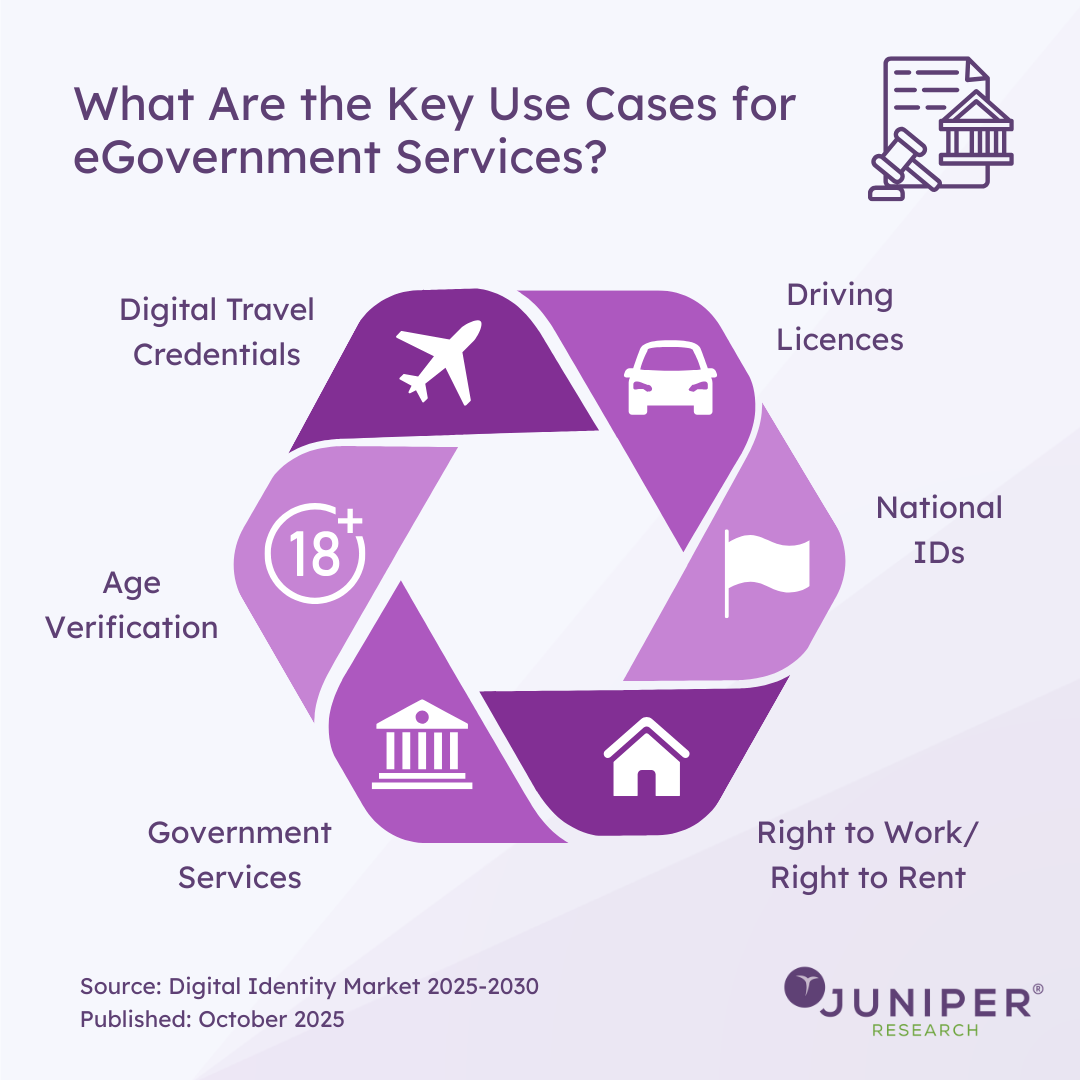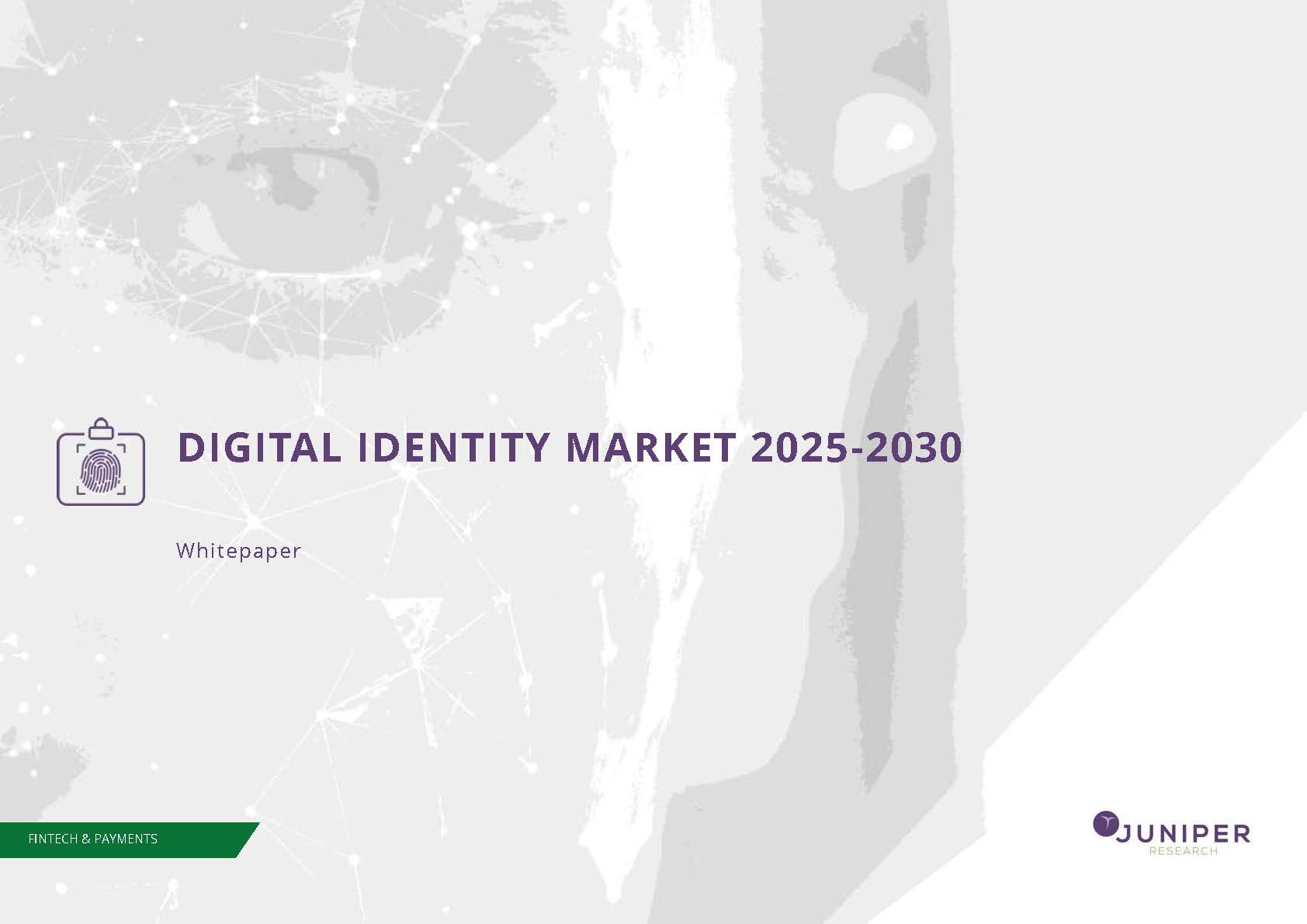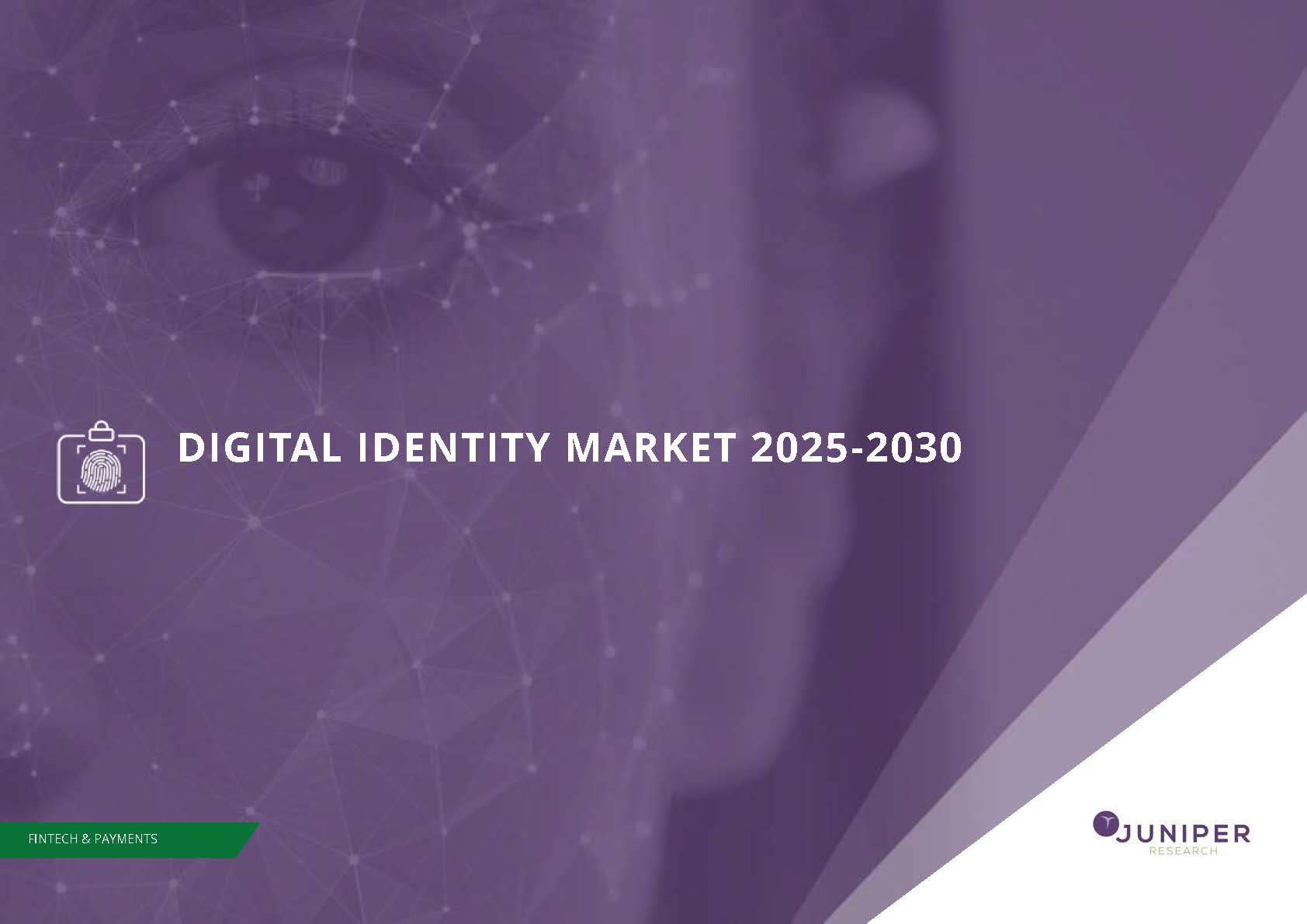Exploring the 6 Key Use Cases for eGovernment Services


eGovernment initiatives are transforming how citizens interact with public services. By digitising identity systems and enabling secure online verification, governments can offer faster, simpler, and more efficient access to essential services. Below are some of the most prominent use cases driving adoption.
Digital Travel Credentials
Digital Travel Credentials (DTCs) modernise border control and travel verification processes. Stored securely on a smartphone or digital ID wallet, DTCs allow travellers to verify their identity digitally—reducing manual document checks and improving airport efficiency. By linking to national identity systems, DTCs enhance security while creating a smoother experience for both travellers and border authorities.
Driving Licences
Digital driving licences provide citizens with a convenient and secure alternative to traditional physical cards. These credentials can be verified instantly by law enforcement or rental agencies through digital authentication methods. Beyond convenience, digital licences reduce the risk of forgery and streamline renewals and updates by connecting directly with government databases.
National IDs
National digital IDs form the foundation of most eGovernment ecosystems. They enable citizens to authenticate their identity across multiple platforms, from healthcare to tax systems. A strong national ID infrastructure underpins trust in digital interactions, supporting a wide range of services and reducing administrative burdens. Governments that successfully implement national IDs often see faster digital adoption and improved access to social programmes.
Right to Work / Right to Rent
Digital verification of employment and residency rights simplifies checks for both individuals and organisations. Employers and landlords can confirm eligibility within seconds, cutting paperwork and speeding up decision-making. For citizens, this means fewer delays when starting a new job or securing accommodation—especially when relocating or moving between regions.
Government Services
eGovernment portals bring public services together under one digital roof. From renewing passports to applying for benefits, citizens can complete tasks online without visiting physical offices. This not only saves time but also reduces operational costs for governments. Integrating identity verification into these portals ensures secure access and prevents fraud, supporting a more efficient and transparent public sector.
Age Verification
Digital age verification systems allow citizens to prove their age securely without disclosing unnecessary personal information. Whether buying age-restricted products, entering venues, or accessing online content, users can share just the required data—nothing more. Governments benefit too, as these systems uphold regulations while promoting user privacy through digital ID frameworks.
Together, these use cases demonstrate how eGovernment initiatives can enhance citizen trust, accessibility, and efficiency. By digitising identity verification and integrating it across key services, governments can deliver more connected, user-centric experiences. As digital identity frameworks mature, citizens will increasingly expect—and rely on—these seamless interactions in their daily lives.
Source: Digital Identity Market 2025-2030
Read the Press Release: Digital Identity Market to Exceed $80 Billion by 2030 Globally, Accelerated by Regulation & Hybrid Strategies
Download the Whitepaper: How Digital Identity is Going Mainstream
Latest research, whitepapers & press releases
-
 ReportFebruary 2026Fintech & Payments
ReportFebruary 2026Fintech & PaymentsMobile Money in Emerging Markets: 2026-2030
Our Mobile Money in Emerging Markets research report provides detailed evaluation and analysis of the ways in which the mobile financial services space is evolving and developing.
VIEW -
 ReportJanuary 2026IoT & Emerging Technology
ReportJanuary 2026IoT & Emerging TechnologyPost-quantum Cryptography Market: 2026-2035
Juniper Research’s Post-quantum Cryptography (PQC) research suite provides a comprehensive and insightful analysis of this market; enabling stakeholders, including PQC-enabled platform providers, specialists, cybersecurity consultancies, and many others, to understand future growth, key trends, and the competitive environment.
VIEW -
 ReportJanuary 2026Telecoms & Connectivity
ReportJanuary 2026Telecoms & ConnectivityMVNO in a Box Market: 2026-2030
Juniper Research’s MVNO in a Box research suite provides Mobile Virtual Network Enablers, Mobile Virtual Network Aggregators, and other players with detailed analysis and strategic recommendations for monetising demand for MVNO in a Box services.
VIEW -
 ReportDecember 2025
ReportDecember 2025AI Agents for Customer Experience Platforms Market: 2025-2030
Our comprehensive AI Agents for Customer Experience Platforms research suite comprises detailed assessment of a market that is set to disrupt mobile communications. It provides stakeholders with insight into the key opportunities within the AI agents for customer experience platforms market over the next two years.
VIEW -
 ReportDecember 2025Fintech & Payments
ReportDecember 2025Fintech & PaymentseCommerce Fraud Prevention Market: 2025-2030
Our eCommerce Fraud Prevention research suite provides a detailed and insightful analysis of this evolving market; enabling stakeholders from financial institutions, law enforcement agencies, regulatory bodies and technology vendors to understand future growth, key trends, and the competitive environment.
VIEW -
 ReportNovember 2025Telecoms & Connectivity
ReportNovember 2025Telecoms & ConnectivityeSIMs & iSIMs Market: 2025-2030
Juniper Research’s eSIMs and iSIMs research suite offers insightful analysis of a market set to experience significant growth in the next five years. The research suite provides mobile network operators (MNOs), original equipment manufacturers (OEMs), and eSIM management and platforms vendors with intelligence on how to capitalise on the market growth, and guidance on how eSIM-only devices and sensors, SGP.42, in-factory provisioning, and iSIMs will change the competitive landscape.
VIEW
-
 WhitepaperJanuary 2026IoT & Emerging Technology
WhitepaperJanuary 2026IoT & Emerging TechnologyPreparing for Q-Day: Post-quantum Security Shift
Our complimentary whitepaper, Preparing for Q-Day: Post-quantum Security Shift, assesses the factors which are increasing interest in adopting PQC, and challenges to PQC adoption. Additionally, it includes a forecast summary of the global spend on PQC by 2035.
VIEW -
 WhitepaperJanuary 2026Telecoms & Connectivity
WhitepaperJanuary 2026Telecoms & ConnectivityHow Fintechs and Retail Companies Are Changing Mobile Services
Our complimentary whitepaper, How Fintechs and Retail Companies Are Changing Mobile Services, explores the key enterprises entering the MVNO market and launching mobile services via MVNO in a Box partners. It also provides forecasts for total MVNO revenue from mobile subscribers in 2030.
VIEW -
 WhitepaperJanuary 2026IoT & Emerging Technology
WhitepaperJanuary 2026IoT & Emerging TechnologyTop 10 Emerging Tech Trends 2026
See which emerging technologies will shape enterprise strategy and investment in 2026; from post-quantum cryptography to neuromorphic computing and next-generation infrastructure.
VIEW -
 WhitepaperDecember 2025Telecoms & Connectivity
WhitepaperDecember 2025Telecoms & ConnectivityHuman + AI: Drivers of Customer Experience AI Agents in 2026
Our complimentary whitepaper, Human + AI: Drivers of Customer Experience AI Agents in 2026, examines the key drivers of the AI agents for customer experience platforms market in 2025.
VIEW -
 WhitepaperDecember 2025Fintech & Payments
WhitepaperDecember 2025Fintech & PaymentsBeyond Chargebacks: The True Cost of Fraud for Digital Commerce
Our complimentary whitepaper, Beyond Chargebacks: The True Cost of Fraud for Digital Commerce, examines the state of the eCommerce fraud prevention market; considering the impact of evolving digital fraud strategies, including key trends such as identity theft, account takeovers, chargebacks, policy abuse and friendly fraud.
VIEW -
 WhitepaperNovember 2025Telecoms & Connectivity
WhitepaperNovember 2025Telecoms & ConnectivityeSIM-only Devices: The Impact on Operators, Consumers, and IoT
Our complimentary whitepaper, eSIM-only Devices: The Impact on Operators, Consumers, and IoT, explores the challenges and opportunities for the three segments, with a particular focus on eSIM-only smartphones and SGP.42.
VIEW
-
Fintech & Payments
Civic Identity Apps, Tokenisation, & AI to Revolutionise Fraud & Security Globally in 2026
January 2026 -
Telecoms & Connectivity
eSIM Connections to Reach 1.5bn Globally in 2026, But Platforms Must Adapt to Fuel Growing IoT Demand
January 2026 -
Fintech & Payments
Modern Card Issuing Platforms to Issue 1.6 Billion Payment Cards in 2030, as Banks Shift Focus From UX to Cost Efficiency
January 2026 -
IoT & Emerging Technology
Post-quantum Cryptography Market to Exceed $13 Billion by 2035 as Q-Day Awareness Accelerates
January 2026 -
Fintech & Payments
Digital Wallets: QR Codes to Constitute Half of All Wallet Transactions Globally Over Next Five Years
January 2026 -
Telecoms & Connectivity
MVNO in a Box Platforms to Drive MVNO Market to 438 Million Subscribers Globally by 2030
January 2026



















